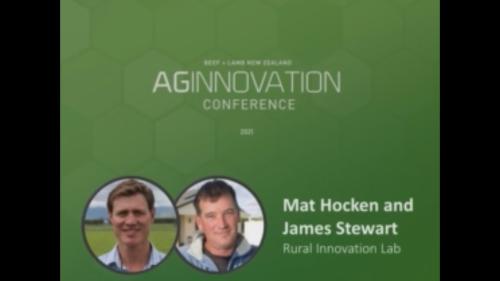Search results
Displaying 461 - 470 results of 1078
- NewsFarmers are strongly encouraged to have their say during this once-in-a-generation opportunity to get the legislation governing the use of our productive resources right. Find out more about key …

- VideoThe Rural Innovation Lab aims to help entrepreneurial farmers and growers connect with like-minded thinkers and new ways to solve problems; to get ahead of the changes and disruptions in farming. …
- Factsheet… 100 extra dry matter over oneyear period compared unmated hogget more labour required inlamb hoggets reduce management options coping feed …
- Factsheet… safety policy statement available 10 accident reporting procedure place 11 hazardous substances correctly stored labelled used 12 workers over age 16 only … farming business own personal development red meat sector good practice 1 employees have …
- News… says the Awards are an opportunity for the red meat sector to come together and celebrate its … “I encourage anyone with an interest in the red meat sector to mark the date in the diary …

- Page… pigs Despite border controls, unauthorised meat products could potentially enter New … pigs, you must meet certain requirements to reduce the risk of spreading unwanted … also known as 'mad cow disease'. If BSE entered New Zealand it would have a severe impact …
- Factsheet… means many hill country farmers required also fence streams when stock rotationally … management critical source areas through tailored farm environment plan rather than blanket … farms full explanation calculations body report appendix 2 5 calculated impacts future …
- Factsheet… means many hill country farmers required also fence streams when stock rotationally … management critical source areas through tailored farm environment plan rather than blanket … farms full explanation calculations body report appendix 2 5 calculated impacts future …
- Resource book… classes grazing area swaps between species reducing drench use where possible changing stocking policies reduce parasite pressure monitoring parasites … break cycle increasing drench resistance reducing larval contamination flats while …
- PageDisease prevention and control require regular attention to stock health, knowledge, planning, good record keeping and compliance with domestic regulations. Explore recommended practices and specific …
